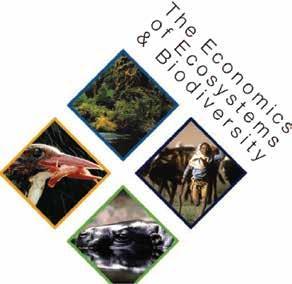
This study was commissioned by the Group of Eight + Five (G8+5), hosted by United Nations Environment Programme and launched in 2007 by Germany and the EU Commission. It builds on the analysis of the millennium ecosystem assessment and takes the analysis further by demonstrating the economic significance of biodiversity loss and ecosystem degradation in terms of negative effects on human well-being’. So far, nature’s benefits have played a minor role in policy. Why is this the case? It is largely due to the fact that many ecosystem services are poorly visible and their continuous availability is often falsely assumed. Also, many of nature’s benefits are public goods, so there is little incentive to take action on behalf of ‘everyone’. Finally, other needs and objectives may seem more pressing and desirable and decisions are often made without knowing the environmental consequences. In order to make the economic value that nature provides visible. The project suggests a shift in focus and show how taking nature’s benefits into account can inform policy choices, executive actions, business decisions and consumer behaviour. The Economics of Ecosystems and Biodiversity (TEEB) suggests a tiered approach to analysing problems and ascertaining suitable policy responses. Appraising ecosystem services provides a full picture, outlining the costs and benefits of different policy options and highlighting the best local strategy for enhancing human well-being and economic sustainability Evaluations of any kind are a powerful ‘feedback mechanism’ for a society which has distanced itself from the biosphere, upon which its very health and survival depends. When appraising nature’s benefits we should seek answers to these questions: Which ecosystem services are central to the local/regional society and economy? Who depends on these services? Which services are at risk? How will a policy action affect these services? Local knowledge and dialogue among colleagues and stakeholders can generate first answers that help orient policy. These questions can be answered through use of different tools and decision support methods which this project illustrated through different case studies across the world. The project also suggests different instruments that capture value by rewarding ad supporting good conservation.
Prof. Haripriya S. Gundimeda
